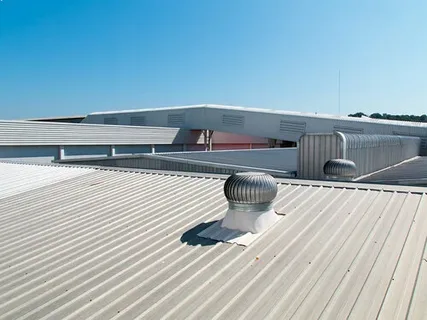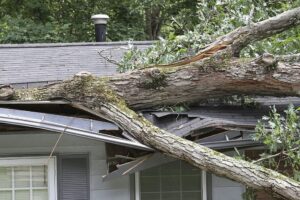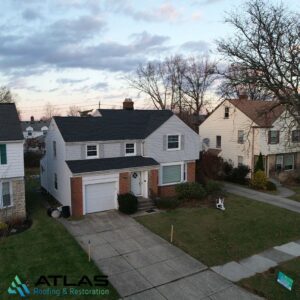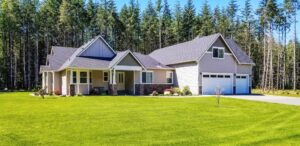Understanding Commercial Metal Roofing
Commercial roofing plays a crucial role in protecting business properties, ensuring energy efficiency, and enhancing structural integrity. Among the many options available, metal roofing stands out due to its durability, longevity, and sustainability. In this guide, we will explore the benefits, costs, and long-term performance of commercial metal roofs while adhering to best practices in commercial roofing.
Benefits of Commercial Metal Roofing
Durability and Longevity
One of the primary advantages of metal roofing is its exceptional durability. Metal roofs can withstand harsh weather conditions, including heavy rain, strong winds, and hailstorms, making them ideal for commercial buildings. With proper installation and maintenance, a commercial metal roof can last 40 to 70 years, significantly outperforming traditional roofing materials.
Energy Efficiency and Sustainability
Metal roofing reflects solar heat rather than absorbing it, reducing cooling costs during hot summer months. Many metal roofs are coated with energy-efficient finishes that enhance their reflective properties, contributing to lower energy consumption. Additionally, metal roofing is 100% recyclable, making it an environmentally friendly choice for commercial properties.
Fire Resistance and Safety
Unlike asphalt-based roofing materials, metal roofs are non-combustible and have a Class A fire rating, the highest rating available. This fire-resistant property makes metal roofing a preferred choice for commercial buildings requiring enhanced safety measures.
Minimal Maintenance Requirements
Commercial metal roofs require less maintenance compared to traditional roofing materials. Routine inspections, occasional cleaning, and minor repairs help maintain the roof’s integrity. The inherent strength of metal reduces the likelihood of cracks, leaks, or structural damage over time.
Costs of Installing a Commercial Metal Roof
The cost of a commercial metal roof varies based on several factors, including the type of metal, roof size, complexity of installation, and additional coatings or insulation. While the initial investment is higher than traditional roofing materials, the long-term savings in maintenance, repairs, and energy efficiency make metal roofing a cost-effective option.
Factors Affecting Cost
- Material Choice – The type of metal used influences the overall cost. Higher-end materials, such as copper or aluminum, tend to be more expensive than steel or galvanized metal.
- Roof Design and Complexity – The more complex the roof design, the higher the installation costs. Sloped or multi-layered roofs may require additional labor and materials.
- Installation and Labor Costs – Professional installation ensures longevity and performance. Hiring experienced commercial roofing contractors ensures that the job is done correctly, preventing costly repairs down the line.
- Additional Features – Coatings, insulation layers, and special treatments impact the total expense. Cool roof coatings and UV-resistant finishes enhance efficiency but add to upfront costs.
Long-Term Performance of Commercial Metal Roofs
Weather Resistance and Structural Integrity
Metal roofs are engineered to withstand extreme weather conditions, making them ideal for commercial applications. They resist moisture, preventing mold and mildew growth, and maintain structural integrity under fluctuating temperatures.
Impact on Property Value
A well-installed commercial metal roof enhances property value by improving aesthetic appeal and ensuring long-term reliability. Potential buyers and tenants are often drawn to the benefits of energy-efficient and low-maintenance roofing solutions.
Roofing Materials for Commercial Applications
When considering a commercial roofing system, it is essential to choose materials that align with durability and energy efficiency. At Atlas Roofing & Restoration, we specialize in:
- TPO Roofing – Thermoplastic Polyolefin offers excellent UV resistance and energy efficiency.
- PVC Roofing – Polyvinyl Chloride is a durable and flexible option with superior chemical resistance.
- EPDM Roofing – Ethylene Propylene Diene Monomer is a synthetic rubber membrane known for its longevity and resilience.
- Modified Bitumen – A reinforced asphalt-based system that provides enhanced weather resistance and flexibility.
Conclusion
Commercial metal roofing is a long-term investment that offers unmatched durability, energy efficiency, and cost savings. While the initial cost may be higher than traditional materials, the benefits far outweigh the expenses, making metal roofing an ideal choice for commercial properties.
For businesses looking to install or upgrade their roofing system, Atlas Roofing & Restoration provides expert solutions tailored to your specific needs. Our team specializes in TPO, PVC, EPDM, and Modified Bitumen roofing, ensuring quality craftsmanship and long-lasting performance. Contact us today to discuss your commercial roofing project!




